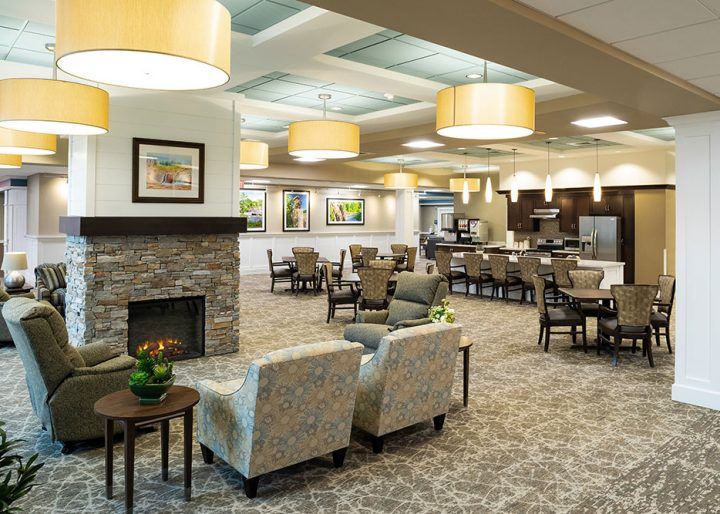Enjoy a safe and engaging environment in an Assisted Living facility.
Enjoy a safe and engaging environment in an Assisted Living facility.
Blog Article
Aided Living: a Compassionate Setting for Elders With Memory Obstacles
Assisted living centers increasingly offer as compassionate environments tailored to the distinct demands of elders grappling with memory difficulties. By giving individualized care and structured regimens, these neighborhoods not just improve cognitive function yet also foster emotional connections, minimizing seclusion among citizens. Specialized strategies, such as music therapy and memory strategies, are employed by trained staff to help with deeper interaction. The performance of these interventions often pivots on the involvement of family members in the care procedure, prompting a more detailed assessment of how this collective initiative influences end results for both locals and enjoyed ones.
Understanding Memory Difficulties
Recognizing memory difficulties is essential for supplying reliable care to senior citizens encountering cognitive decrease. Memory impairments, which can materialize as lapse of memory, complication, or trouble recalling recent events, are commonly symptoms of conditions such as Alzheimer's condition or other kinds of dementia. These challenges can substantially influence an elderly's capacity to perform daily tasks, preserve social relationships, and take care of personal security.
Acknowledging the numerous phases of cognitive decrease is important for caretakers and healthcare professionals. Early-stage amnesia may include mild lapse of memory, while mid-stage decline can cause extra noticable disorientation and confusion. In late-stage dementia, individuals may lose the capability to interact successfully, needing detailed assistance and understanding from caretakers.
This demands a caring method to care that focuses on the psychological well-being of the person. Eventually, a deep understanding of these challenges is basic to providing compassionate and reliable care for seniors encountering cognitive decline.
Advantages of Assisted Living
Helped living deals many advantages for senior citizens with memory difficulties, providing a helpful environment that cultivates independence while making certain security and treatment. One of the key benefits is the continuous supervision and aid readily available, which helps minimize dangers connected with memory-related problems. Memory Care. This constant assistance allows senior citizens to involve in daily tasks without the fear of mishaps or complication
Additionally, assisted living centers typically give structured regimens that can boost cognitive function and security. These regimens help homeowners really feel even more protected and lower anxiety, as they understand what to anticipate daily. Social interaction is one more substantial advantage, as these environments motivate links among citizens, advertising emotional well-being and minimizing sensations of seclusion.
In addition, aided living staff are educated to identify the one-of-a-kind requirements of elders with memory obstacles, enabling for personalized treatment strategies that deal with individual preferences and requirements. This tailored technique not only boosts the quality of treatment yet additionally encourages seniors to keep a feeling of freedom. Generally, assisted living works as a compassionate option, stabilizing the need for support with the wish for freedom in the lives of elders encountering memory challenges.
Specialized Treatment Approaches
Carrying out specialized care approaches is essential for effectively sustaining senior citizens with memory challenges. One basic strategy is person-centered care, which emphasizes the relevance of comprehending each resident's life background, preferences, and values.
An additional vital strategy entails using cognitive stimulation treatments. Activities made to improve memory recall, encourage social communication, and promote imagination can significantly affect locals' total wellness. Techniques such as memory therapy take advantage of personal memories to stimulate discussion and connection, while songs therapy can stimulate emotions and memories, giving comfort.

Developing a Supportive Neighborhood
(Memory Care Facility Charlotte)An encouraging neighborhood plays an important duty in improving the lives of elders with memory difficulties. Such an area fosters a setting of understanding, compassion, and support, which is vital for individuals encountering cognitive difficulties. By producing a network of assistance, assisted living facilities can dramatically improve the lifestyle for residents.
Central to a helpful area is the presence of skilled team who are sensitive to the special needs of seniors with memory disabilities. These specialists not only offer necessary treatment but likewise involve homeowners in meaningful activities that promote cognitive feature and advertise social communication. Programs that encourage participation in group workouts, arts and crafts, or memory video games can boost both physical and psychological well-being.
Furthermore, a helpful neighborhood advertises solid links amongst homeowners. Encouraging friendships and peer support assists to decrease sensations of seclusion and promotes a feeling of belonging. Normal gatherings and public eating experiences can better reinforce these bonds, developing an atmosphere where seniors feel valued and understood.
Involving Families in Care
Involving family members in the care procedure is important for offering comprehensive assistance to senior citizens with memory difficulties. Member of the family commonly offer as crucial supporters, providing insights into the person's choices, background, and routines that can enhance customized care. By including them in conversations and treatment planning, assisted living facilities can create an extra holistic approach that resonates with the homeowner's demands.

Encouraging households to join care not just enhances the wellness of the elderly but additionally provides psychological assistance to relative. Entailing family members in treatment grows a sense of neighborhood and belonging, ensuring that senior citizens really feel connected to their liked ones. Inevitably, a collaborative technique to care improves the lives of both homeowners and their families, creating a compassionate and supportive environment that promotes dignity and respect.
Verdict
To conclude, assisted living serves as a crucial source for elders experiencing memory challenges, providing individualized treatment customized to individual requirements. The structured regimens and interesting tasks advertise cognitive function and emotional well-being, promoting a feeling of belonging. Specialized treatment strategies, such as memory and songs treatment, enhance communication and connection. By involving households in the care procedure, helped living develops a thorough assistance network, inevitably improving the lives of residents and their loved ones.
Report this page